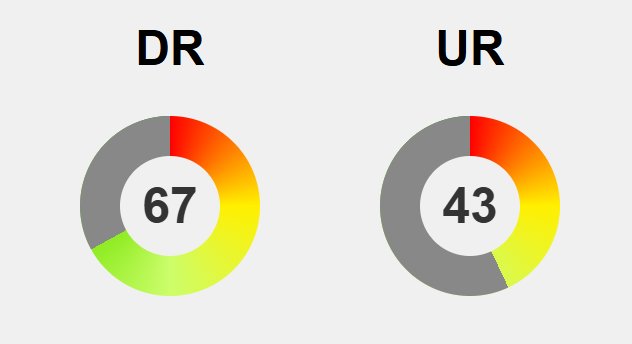Step into a world where economic disparity defines society, and ask yourself: how did Karl Marx’s revolutionary ideas challenge the very foundation of capitalism? From his critique of systemic exploitation to his vision of a classless society, Marx exposes how wealth and power are concentrated in the hands of a few, perpetuating inequality and social unrest. His analysis reveals capitalism’s internal contradictions—cyclical crises and rising inequality—that threaten its sustainability. But what if true change is possible? Marx believed that a revolutionary upheaval by the working class could dismantle private ownership and create a society rooted in shared resources and justice. Today, his ideas resonate amid ongoing debates over wealth concentration, social injustice, and environmental crises. While history shows the risks of radical change, his call for systemic reform continues to inspire movements striving for a fairer, more equitable world—raising the vital question: can we transform society by confronting these deep-rooted economic flaws?
Unveiling the Class Struggle: Marx’s Perspective on Capitalism
Karl Marx’s ideas fundamentally changed how we understand society and the economy. At its core, his work reveals that history is driven by conflicts between social classes. He focused on the ongoing struggle between the working class, or proletariat, and the ruling class, or bourgeoisie, who control most of the wealth and production. Marx argued that capitalism is built on this imbalance of power, where owners profit from the labor of others while workers see little of the value they create. This isn’t just about money—it’s about who holds social and political power and how that power shapes society.
Marx’s critique exposes capitalism as an inherently unequal system. The wealthy elite, owning factories and land, seek to maximize profits by paying workers as little as possible. Meanwhile, workers sell their labor simply to survive, producing more value than they are compensated for. Marx called this surplus value—it’s the difference between what workers produce and what they are paid—and it forms the foundation of capitalist profits. This process reveals how the system benefits a small minority at the expense of the majority, leading to growing inequality and concentrated wealth.
The conditions of 19th-century Europe, marked by rapid industrialization, significantly influenced Marx’s ideas. Traditional farming communities were transforming into bustling industrial centers, and factory owners amassed enormous wealth. Workers faced long hours, dangerous conditions, and low wages, with little political influence. The widening gap between the rich few and the struggling many highlighted the exploitation embedded in this new economic order. These social and economic shifts fueled unrest, prompting Marx to analyze how capitalism’s structures perpetuate inequality and social division.
At the heart of Marx’s theory are key concepts like class struggle and exploitation. He believed that history is shaped by conflicts between those who own production and those who sell their labor. Surplus value, the excess created by workers beyond their wages, sustains capitalism by extracting wealth from the laboring majority. Marx saw this exploitation as systemic—woven into the very fabric of capitalism—and argued that it would inevitably lead to social upheaval. His ideas challenge us to see beyond surface-level economics and recognize the underlying power dynamics at play.
Marx also believed that capitalism contains internal contradictions that make it unstable. The relentless pursuit of profit leads to cycles of overproduction, economic crises, and falling wages, threatening its own survival. These contradictions generate inequality and social tension, pushing society toward a breaking point. Marx saw these crises not as failures but as signs that the system’s foundations are flawed and unsustainable in the long run. His critique encourages us to question who truly benefits from this economic system and at what cost.
He envisioned a revolutionary change driven by the working class itself. Marx argued that only through collective action could the deep-rooted structures of private ownership and class hierarchy be dismantled. This uprising would replace private property with communal ownership, creating a society where resources are shared equitably. The goal was a classless society—one where exploitation ends and everyone has access to the means of living and working with dignity. Marx believed that such a transformation was not only necessary but inevitable as capitalism’s internal contradictions intensified.
This revolutionary vision was rooted in the idea of class consciousness—workers recognizing their shared interests and collective power. Marx believed that awareness of exploitation would motivate the proletariat to challenge the ruling class and overthrow the existing order. The transition wouldn’t be peaceful; it would involve upheaval, driven by the crises and inequalities that capitalism produces. Ultimately, Marx saw this upheaval as the pathway to a society based on equality, cooperation, and justice—free from systemic exploitation.
Today, Marx’s ideas remain highly relevant. His critique of capitalism offers a lens to understand ongoing issues like wealth inequality and social injustice. Movements advocating for fair wages, wealth redistribution, and workers’ rights draw directly from his analysis. His insights inspire efforts aimed at systemic change, challenging the concentration of power and resources. While the world has evolved since Marx’s time, his core message about the importance of addressing economic inequality continues to resonate and shape debates about the future of society.
The Hidden Flaws of Capitalism: Power, Inequality, and Exploitation
Capitalism, as critiqued by Marx, is built on a structure that inherently favors a small elite while leaving the majority at a disadvantage. Its foundation relies on private ownership of the means of production—factories, land, and resources—controlled by wealthy individuals or corporations. These owners seek to maximize profits, often by paying workers as little as possible and extracting as much labor as they can. This creates a persistent imbalance where wealth is concentrated in the hands of a few, and the rest of society must sell their labor to survive. Marx pointed out that this dynamic isn’t accidental; it’s embedded in the very fabric of capitalism.
This setup fosters a cycle where economic power reinforces social dominance. The owners of capital leverage their wealth to influence politics and shape policies, securing even greater control over resources. Meanwhile, workers face low wages, poor working conditions, and limited opportunities for upward mobility. The surplus value—the difference between what workers produce and what they are paid—becomes the primary source of profits for capitalists. This systematic extraction of wealth from labor underpins the inequality that defines capitalism’s core flaw.
Class conflict lies at the heart of this system. The ongoing tension between the bourgeoisie—those who own production—and the proletariat—those who sell their labor—drives the contradictions within capitalism. As profits grow, inequality deepens, further consolidating the power of the elite. These disparities are not mere side effects but fundamental features that generate social unrest and economic crises. Marx believed these crises were signs that capitalism’s internal conflicts threaten its stability, revealing its inherent unsustainability.
Wealth inequality under capitalism extends beyond income gaps to access to power and opportunity. The wealthy continue to amass resources through inheritance and corporate dominance, while wages for the majority stagnate and social mobility becomes more elusive. This widening divide exposes the systemic flaws of capitalism—a system designed to benefit a privileged few at the expense of the many. It perpetuates social divisions that resist reform, highlighting the need for a fundamental change.
Marx’s critique reveals that capitalism’s focus on growth and profit masks deep structural flaws. Its very design fosters a persistent imbalance of power, with those controlling capital benefiting disproportionately. Cycles of boom and bust, driven by the pursuit of profit, lead to crises that threaten societal stability. This contradiction isn’t accidental but inevitable, pushing society toward upheaval unless a radical shift occurs. Marx’s analysis challenges us to see beyond surface economics and question who truly benefits from the existing system.
Revolutionary Visions: Marx’s Blueprint for a Classless Society
Marx believed that ending capitalism’s cycle of exploitation required more than superficial reforms; it demanded a complete overhaul driven by the working class itself. He argued that only through revolutionary action could the deeply rooted structures of private ownership and class hierarchy be dismantled. This upheaval would involve workers uniting, recognizing their shared interests, and overthrowing the ruling elite to take control of the means of production. Replacing private ownership with collective ownership, Marx envisioned a society where resources are shared equitably, ending the cycle of exploitation that perpetuates inequality.
He saw this revolution as an inevitable consequence of capitalism’s internal contradictions. Persistent crises like overproduction and falling wages would push society toward a breaking point. As workers become increasingly aware of their common exploitation, they would develop class consciousness—an understanding of their collective power. This awareness would motivate them to challenge the existing order, seizing the opportunity to overthrow the bourgeoisie and establish a new social order rooted in equality and cooperation.
Marx’s ultimate goal was to create a society where resources and industries are owned collectively, and wealth is distributed according to need rather than profit. In this new order, class distinctions would disappear entirely, replaced by a system in which everyone works according to their ability and receives according to their needs. Such a society would foster greater freedom, human development, and social cohesion, removing the economic and social barriers that keep people trapped in poverty and oppression. The abolition of private property in production was central to this vision, as it would eliminate the foundation of class division.
This transformation would not be peaceful or gradual but driven by the crises and contradictions inherent in capitalism. Marx believed these upheavals were necessary catalysts for change, revealing the system’s unsustainability. The revolutionary process would be fueled by economic crises, social unrest, and the rising consciousness of workers. Once the ruling class’s power is challenged and overthrown, society could transition to a new order based on shared ownership, cooperation, and justice—free from systemic exploitation.
Marx’s revolutionary ideas aimed to establish a society where economic power is democratized and social inequalities are eliminated. He envisioned a future in which the working class seizes control, ending the cycle of exploitation and creating a more just, equitable world. This vision was rooted in the belief that systemic change was essential to achieve true freedom and human potential. While the path to this society would be tumultuous, Marx saw it as the necessary route to finally dissolving the divisions that divide humanity and building a society based on collective well-being.
This comprehensive vision underscores the importance of understanding the core principles behind Marx’s ideas. For those interested in exploring more about how these concepts can be applied today, you can read about Marxist theory and its relevance in contemporary society. Such insights deepen our appreciation of the ongoing struggle for economic justice and social equality.
Marx’s Legacy in Modern Society: Lessons, Movements, and Challenges
Marx’s ideas continue to resonate strongly today, especially as economic inequality and social injustices remain pressing global issues. His critique of capitalism offers a powerful lens for understanding how wealth and power are concentrated, fueling movements that challenge the status quo. From labor unions fighting for fair wages to grassroots campaigns advocating for wealth redistribution, his principles inspire efforts aimed at creating a more equitable society. Many contemporary social movements, whether pushing for universal healthcare, affordable housing, or stronger workers’ rights, echo Marx’s call for systemic change.
Historically, Marxist thought has fueled transformative movements worldwide. The Russian Revolution of 1917 was heavily influenced by Marxist ideas, leading to the overthrow of the Tsarist regime and the rise of the Soviet Union. Similarly, China’s communist revolution sought to establish a classless society based on Marxist principles. These instances show how his critique of capitalism has driven profound political shifts, reshaping nations and their social structures. Even in more reform-minded contexts, his insights help frame debates about inequality, power, and the distribution of resources.
Today, the persistence of wealth inequality underscores the ongoing relevance of Marx’s analysis. While economic growth has lifted many out of poverty, a tiny elite continues to amass disproportionate resources through corporate dominance, investments, and inheritance. Meanwhile, wages for the majority have stagnated, and social mobility remains limited. These patterns reflect Marx’s warnings about systemic wealth concentration, revealing how capitalism’s flaws sustain social divides. As disparities deepen, critics and activists question whether the current system can sustain itself without fundamental reform.
Opponents often point to the failures of past Marxist regimes or argue that a sole focus on class struggle oversimplifies modern social issues involving identity and culture. Still, the core of Marx’s critique—that capitalism inherently benefits a small elite at the expense of the many—remains a vital tool for analyzing systemic inequality. His ideas challenge us to look beyond surface-level solutions and recognize the deeper power structures that uphold social and economic divides. This perspective urges a reconsideration of how resources, influence, and opportunity are distributed in our societies.
The influence of Marx’s critique extends into contemporary debates on corporate power and political influence. Large multinational corporations and financial institutions hold enormous sway over policies, often shaping laws to serve their interests at the expense of broader society. Movements advocating for antitrust reforms, financial regulation, and workers’ control of industries draw directly from Marxist principles, aiming to curb concentrated power. Environmental activism also echoes Marx’s ideas, emphasizing that economic exploitation and ecological degradation are interconnected. Overall, his critique remains a vital foundation for envisioning a fairer, more just future.
The Future of Justice: Embracing Marxist Ideas for a Fairer World
Looking ahead, Marxist critique continues to inspire movements that aim to tackle economic injustice and reduce inequality. As the wealth gap widens, many advocate for social ownership, fairer distribution of resources, and stronger protections for workers. These ideas challenge the dominance of neoliberal capitalism, pushing for policies like progressive taxation, universal basic income, and expanded social safety nets. Such measures seek to democratize resource control and ensure that economic power is shared more equally across society.
Transforming these revolutionary principles into practical change isn’t straightforward. History shows that radical shifts can sometimes lead to authoritarian regimes or economic stagnation if not carefully managed. The challenge lies in adapting Marx’s ideas to modern realities—finding a balance between systemic overhaul and preserving individual freedoms and economic vitality. Thoughtful reforms that address systemic flaws without repeating past mistakes are essential for sustainable progress.
Individuals and institutions can play a critical role by supporting policies that promote wealth redistribution, fair wages, and workers’ rights. Encouraging cooperative businesses and community-owned enterprises shifts control away from concentrated elites toward local, democratic structures. Governments can implement more progressive taxes, enhance transparency, and strengthen labor protections to foster an economy rooted in justice and inclusivity. These steps bring society closer to the social ownership and collective well-being Marx envisioned.
Today’s global economic debates echo Marx’s critique, especially as corporate power and political influence continue to concentrate. Large multinational corporations and financial institutions often shape laws and policies to serve their interests, undermining democracy and deepening inequality. Movements advocating for antitrust reforms, financial regulation, and worker control draw directly on Marxist principles, aiming to curb these concentrations of power and create a fairer system.
Environmental and social justice campaigns also reflect Marx’s interconnected critique of exploitation. Advocates argue that economic and ecological crises stem from the same root—unsustainable, profit-driven systems that prioritize short-term gains over collective well-being. Efforts to promote sustainable resource management, community ownership, and equitable development echo core Marxist ideas about social ownership and shared responsibility.
Looking further, embracing these principles could lead to a future where resources are managed collectively, reducing disparities and fostering social cohesion. Greater public ownership and democratic decision-making can help create economies that prioritize human needs over profit, leading to more resilient and equitable societies. However, realizing this vision requires careful planning to avoid risks like authoritarianism or economic inefficiency.
Revisiting Marx’s revolutionary ideas today reminds us that the struggle for economic justice is ongoing. His critique challenges us to look beyond surface solutions and question the legitimacy of existing power structures. While transformative change involves complexities and risks, the core principles of questioning power, advocating for collective ownership, and striving for equality continue to inspire efforts worldwide. As inequalities deepen, these ideas offer a compelling roadmap for building a fairer, more just society.


